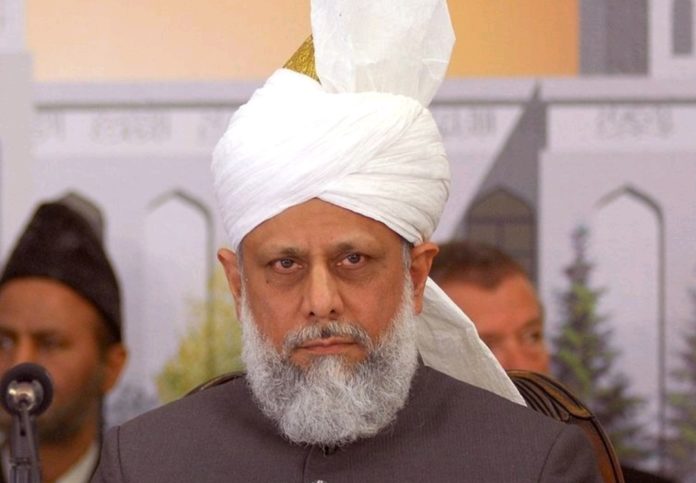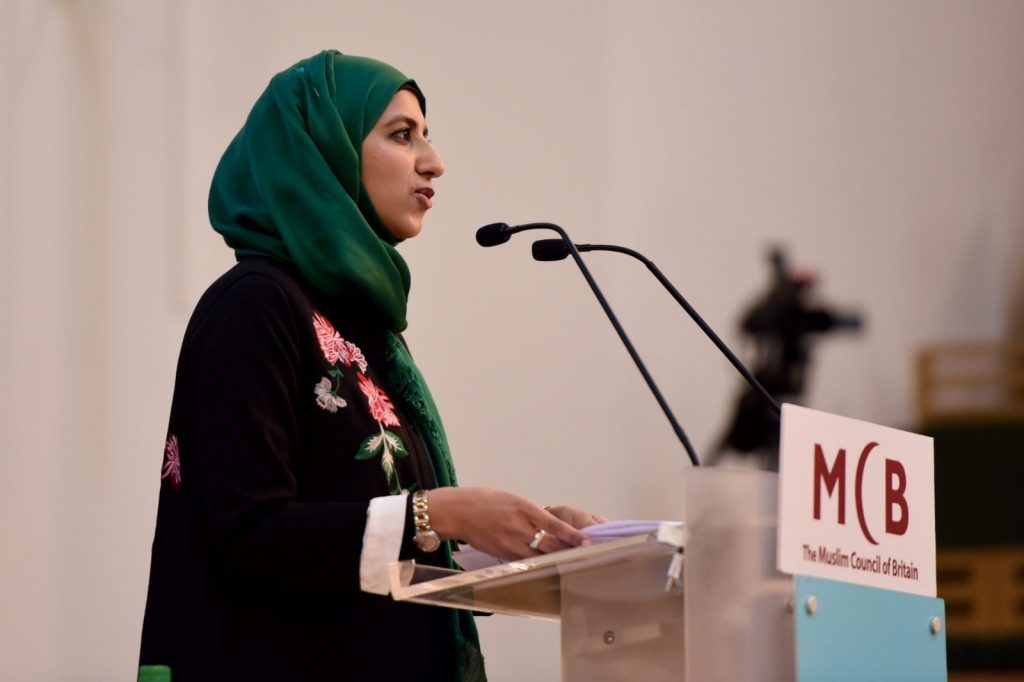
Juveriah Alam argues that Muslims must insist on the right to excommunicate the Ahmadiyya without being vilified for it by non-Muslims.
Last week Zara Mohammed, Secretary-General of the Muslim Council of Britain, appeared on LBC radio to respond to questions from listeners. One such question was whether the MCB “still hold anti-Ahmadi Muslim sentiment as they have a history of dismissing Ahmadi Muslims as Muslims, which extremist Muslims do?”
Mohammed responded stating that: “The MCB does not advocate for any intolerance or discrimination, we’re absolutely against that.” She continued: “to be a Muslim is number one, belief in one God and number two, the finality of Prophethood. So, with the Ahmadiyya community there is a difference in that belief and therefore, just as the MCB cannot represent the Ahmadiyya community, nor can the Ahmadiyya community represent the Muslim Council of Britain. It’s a point of theology.”
Her answer was met with relative understanding by interviewer Iain Dale who responded to the caller stating: “to be fair, if you look at the Christian faith, there are all sorts of different strands of Christianity and you don’t expect one part of Christianity to represent another, do you?”
Praise and backlash
Ms Mohammed received much praise from Muslims on social media for her response as well as some moderate backlash. One such criticism was from Stephen Evans, CEO of the National Secular Society, who said: “The @MuslimCouncil say Islamophobia is a type of racism that targets ‘expressions of Muslimness’. Isn’t their insistence that Ahmadi Muslims are ‘non-Muslims’ an example of hostility towards Ahmadis’ expressions of Muslimness?”
Evans was referring to the APPG definition of Islamophobia, supported by the MCB and rejected by the Conservative government. The argument Evans put forward is that to regard the Ahmadiyya community as non-Muslim is in itself a form of Islamophobia or anti-Muslim hatred on the part of the MCB.
Subscribe to our newsletter and stay updated on the latest news and updates from around the Muslim world!
This argument is not a new one. The very same argument was previously put forward by Sara Khan, the former head of the Commission for Countering Extremism, who stated that the APPG definition “fails to acknowledge the hate faced by minorities within minorities such as the Ahmadiyya community.”
Similarly, the neoconservative political commentator Douglas Murray wrote a satirical article in which he mockingly implied that, if Islamophobia exists at all, it should refer to “Muslims killing Muslims,” i.e. Muslim sectarian violence, as opposed to “people writing nasty and mean things on Twitter.”
In addition, this argument was also put forward in a report by the right-wing think tank Policy Exchange, of which Sir Trevor Phillips was a contributor. The report criticised the APPG definition stating that it “contained no mention of the Ahmadiyya community – or intra-Muslim hatred at all.”
The question is therefore, should the definition of Islamophobia include anti-Ahmadi hatred?
Anti-Ahmadi hatred
The first issue is what constitutes as anti-Ahmadi hatred? Some who criticised Zara Mohammed on Twitter following her comments on LBC considered that the mere assertion that Ahmadi Muslims are not Muslims is a form of bigotry.
A problem with this position is that it holds Muslims to much a higher standard than Christians and Jews. We would not expect Christian organisations such as the Church of England to represent Mormons. Nor would we expect the Board of Deputies of British Jews to also represent the Black Hebrew Israelites.
Just as it would be absurd to accuse the Church of England of anti-Mormon hatred, accusing MCB of bigotry purely for refusing to accept a group that is not in line with core Islamic beliefs is illogical.
A similar example would be the Nation of Islam, who like Ahmadiyya Muslims, believe in a messenger after the Prophet Muhammad (pbuh) and in the same way, Islamic organisations should be under no pressure to represent them. One might argue that to compare the two is offensive due the Nation of Islam’s history of antisemitism and intolerance, however the comparison is valid in this specific line of argument as both groups reject a core Islamic belief being the finality of Prophethood.
Furthermore, elements of the Ahmadiyya movement have recently surfaced with evidence revealing the “Caliph” Mirza Masroor Ahmad himself encouraging a woman to bury allegations of rape.
Still, the MCB, as Zara Mohammed stated on the LBC show, is “completely against the discrimination the Ahmadiyya community face – the hatred, the intolerance, the abuse, the vilification.” It is entirely possible to hold the view that the Ahmadiyya community are, theologically, not within Islam while at the same condemning any hatred espoused against them. As Muslims, we have a right to define the parameters of our religion without undue pressure from non-Muslims.
The second issue is regarding genuine instances of hate speech and abuse against the followers of the Ahmadiyya movement and whether these should constitute Islamophobia.
Islamophobia is where a person is targeted because of their Muslim identity or a “perceived Muslimness.” Where a member of the Ahmadiyya community is abused because of an apparent Muslim identity, as has often been the case, it absolutely constitutes Islamophobia. Similarly, where a Sikh is attacked because of a case of mistaken Muslim identity, that would also count as a case of Islamophobia.
However, where a Muslim promotes hatred against Ahmadis, it cannot be considered as Islamophobia as a perceived Muslim identity has not been the target. “Sectarian hatred” would be a more suitable term. And while this type of hate is just as serious as Islamophobia, it is not helpful to either group to convolute the definition of Islamophobia to include sectarian hatred.
Moreover, it is rather ironic that the very individuals who deny that Islamophobia exists and actively promote Islamophobia are the ones who insist on including sectarian hatred in a definition of Islamophobia.
They can be likened to the racists who play down police brutality against black people by highlighting “black on black crime.” Indeed, minimising the plight of a minority group by pointing to intra-group issues is an age-old white supremacist strategy. It is essentially a form of whataboutary, with a view to play down the significance of everyday Islamophobia faced by British Muslims.
Follow 5Pillars on Telegram here
Subscribe to our Newsletter here


















